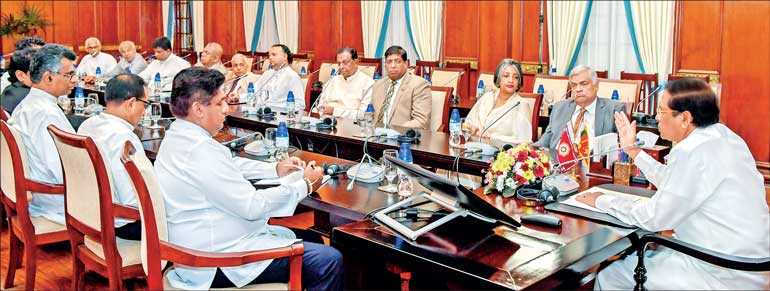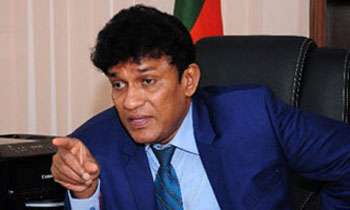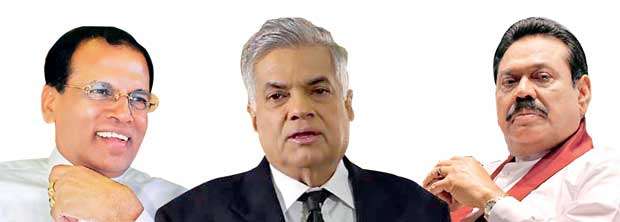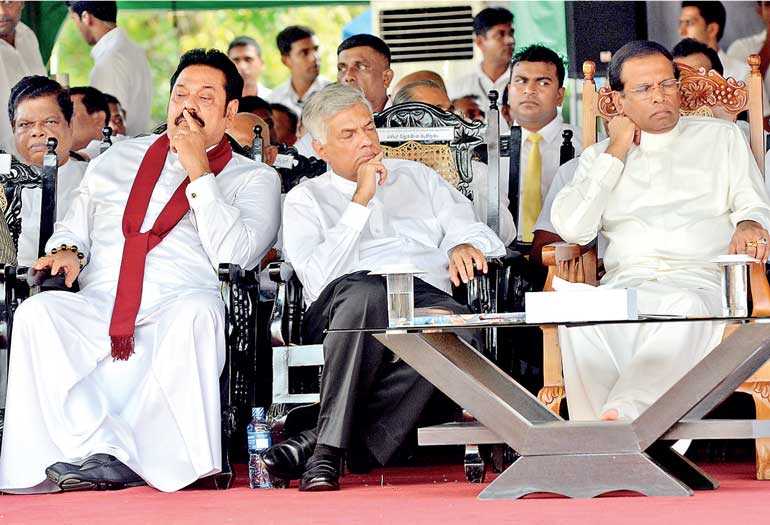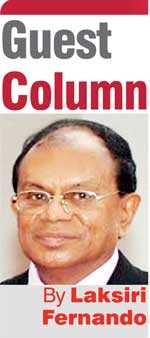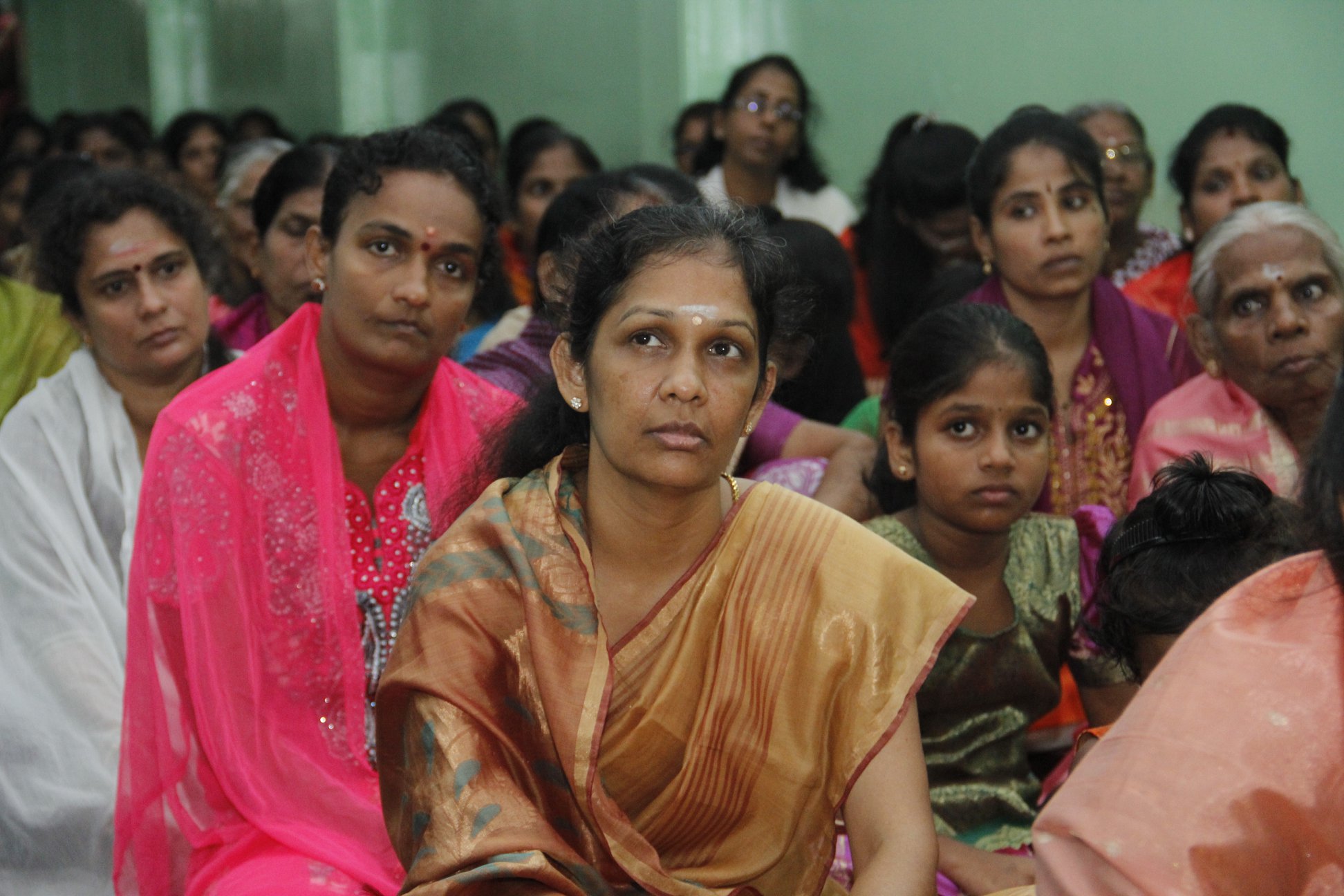
 by gagani weerakoon-02:00 AM DEC
by gagani weerakoon-02:00 AM DEC
The majority of Cabinet Ministers and Parliamentarians in the Government and Opposition are enjoying vacations overseas with family members for the Christmas and New Year holiday period while, few other MPs were holidaying in the cool climes of Nuwara Eliya and are unlikely to return to Colombo till the dawn of 2019.
Parliament which last convened under Speaker Karu Jayasuriya on 21 December is expected to reconvene only on 8 January 2019. According to sources, they are scheduled to return to the country ahead of the next meeting of the Cabinet headed by the President on 2 January 2019.
President Maithripala Sirisena is also in Bangkok, Thailand on a private visit.
Cabinet crisis
The President and Prime Minister Ranil Wickremesinghe both must have thought of taking a break from the political mess but will return along with others, to another chaotic situation as there are unsettled grouses when allocating Cabinet Ministries in addition to internal matters of their respective political parties.
Puttalam District UNP Parliamentarian Palitha Range Bandara says that he would have to take a stern decision if he does not receive a ministerial portfolio in the new Cabinet within a month.
Addressing an event held in Siyambalawewa, Andigama to distribute essential equipment to people under ‘Gam Peraliya’ project, Range Bandara said he had not received the appreciation he deserves, although he has been praised as the turning point for the United National Party.
He said it has already been a few weeks since the new Cabinet of Ministers was appointed, however, he had not received a ministerial portfolio.
Range Bandara was not the only one to complain. Power and Energy Minister Ravi Karunanayake also revealed that he was deprived of the Finance portfolio due to two or three in the UNP itself going against him.
He said that it is a matter for regret that a jealous and ungrateful clique in the Party rejecting him when the whole world accepts him.
He emphasized that this situation was created by a minority group in his Party itself and not by anyone in the Opposition.
Ravi Karunanayake who said that he would accept the challenge with a happy heart and will see how those who have given the works in ultra modern mode will perform in future.
In order to solve these matters, UNP legal experts are currently contemplating suitable legal action to determine what exactly 19th Amendment says about the number of members in the Cabinet.
Abolishing Executive Presidency
New Year resolution for the Janatha Vimukthi Peramuna (JVP) and majority of sensible voters and activists would be getting rid of the Executive Presidency by way of introducing the 20th Amendment. Whether it could receive a two-third majority remains a question.
Speaker Karu Jayasuriya requested religious leaders to take the lead in raising a voice, in the New Year, with regard to calling for the abolition of the Executive Presidency, and rejecting racism and religious bigotry.
Apart from taking the lead in this regard, he requested them to provide the requisite guidance too.
Whilst noting that racism and religious bigotry could be seen once again coming to the fore under a political guise led by politicians in various places, including through temples and places of religious worship, he requested that narrow political agendas not be allowed to incite the North and the South. Jayasuriya made this request when he met the chief representatives to the multi-religious summit at the Speaker’s official residence on 26 December.
He pointed out that Parliamentary democracy could not in any way bear the Executive Presidency, adding that the societal public too had for quite some time urged its abolition. Jayasuriya pointed out that he had, since entering politics, appeared on behalf of the same.
He reminded that late Venerable Maduluwawe Sobitha Thera had organized the society against a developing anti-democratic dictatorship not for the purpose of bringing in a common candidate and to once again establish a Presidential position but to make a common policy victorious and to thereby abolish the Executive Presidency and strengthen democracy. He expressed regret at not being able to fulfil the aim of the abolition of the Executive Presidency, despite the establishment of the Constitutional Council, the Independent Commissions and the Independence of the Judiciary, and ensuring the right to information.
Elsewhere, explaining the series of incidents that took place in the recent past in the Parliament to the clergy, he explained that, “The breakdown of the trust between the President and the Prime Minister began after the commencement of the last Local Government Election.
Early on, because I understood the unfortunate results of this, at all possible times, I continuously intervened to create reconciliation. It is true what the President said, when he said that he had on several occasions attempted to give me the Premiership. Yet, back in the day, we asked for a mandate to appoint Maithripala Sirisena as the President and Ranil Wickremesinghe as the Prime Minister. I didn’t want to accept any post contrary to that mandate.”
He further said, “On 26 October, after the unexpected change in power, I met the President on 27 October.
He requested me to provide the required facilities to the new Premier appointed as per the Gazette Notification issued by him. Although I could act according to the said Gazette Notification, I requested the President to protect democratic principles by showing within seven days that the new Government possessed the majority. Agreeing to this, he said that he would summon the Parliament on 5 November.
Later, owing to practical difficulties, he changed it to 7 November.
However, for whatever the reason, the Parliament was not summoned on either of the said dates. In the meantime, I received a letter containing the signatures of 117 Parliamentarians who were opposed to the newly established Government.
I could not, as per my duty not listen to the voice of the majority. Everyone could see how attempts to prove the majority in Parliament were continuously disturbed. During this period, MPs were being bought for unbelievable sums of money.”
Furthermore, he explained, “There was a big challenge before me. This was regarding whether I allow the majority view to prevail or do I allow force to win. I decided that force should not in any way be allowed to prevail.
I knew the risk of it. Threats to the effect that I would be shot inside the Chamber or have acid thrown at me were levelled at me. If I didn’t take up that challenge and risk on behalf of democracy, our Parliamentary system which has an esteemed history, would have been dragged into an extremely dark age.”
The summit representatives noted that although there was some reconciliation to be seen in the politics of the country at present, because there were certain contradictions in the decisions taken by the two poles of power, namely the President and the Prime Minister it could be harmful to the country. They requested Speaker Jayasuriya to intervene and act.
Western Province Governor Hemakumara Nanayakkara answering a question posed by the Ceylon Today during a special press conference held last week, revealed that President Sirisena is not in agreement with the proposed 20th Amendment to the Constitution, brought by the JVP, seeking the abolition of the Executive Presidency.
Nanayakkara added that the JVP has very limited power in Parliament.
“It was brought by the JVP, but the people at the grassroots level are disturbed by it. We know why they brought it; we know how many people went to have secret discussions with some of these so-called non-governmental organizations. The JVP is a very weak party today. They hasten the process of becoming weaker by bringing in this Amendment,” he added.
He further said that there was also a secret conspiracy to approve a new Constitution, but he would not allow that to happen.
Meanwhile, when queried as to whether it would be the Provincial Councils (PC) Elections or the General/Parliamentary Elections that would be held first, he added that he expected that the PC Polls to be held first owing to the current political situation.
Plus points in a mess
Establishment of the Independence of the Judiciary as being the only light at the end of the tunnel in the context of the recent Constitutional and political crisis, Speaker Karu Jayasuriya said that henceforth, the world would not talk about international judges intervening in Sri Lanka.
The latter was a reference to the call from various stakeholders to have foreign judges involved in a judicial process to try alleged war crimes and human rights abuses and violations, perpetrated and committed during the period of the war.
These views were aired by Jayasuriya when he met the chief representatives of the multi-religious summit at the Speaker’s official residence last week.
Speaker Jayasuriya said so in reference to a landmark judgment interpreting the powers of the Executive President to dissolve the Parliament post-19th Amendment to the Constitution, where a seven-Judge-bench of the Supreme Court on 13 December unanimously quashed President Maithripala Sirisena’s proclamation issued via an extraordinary gazette dissolving the Parliament and calling for a General Election, declaring it null and void, ab initio (from the outset), and sans any force and effect in the law.
Speaking further to the religious representatives, Jayasuriya pointed out that, “It is not important as to who won at the end of the past two months.
This is because the country suffered a major defeat during this period. The prime position that was coming our way in terms of the world’s tourism industry was lost. The Japanese funds for the monorail project of the American Millennium Challenge Corporation and the International Monetary Fund were to be turned back. The respect for our Parliament which has provided examples to the world, suffered a major black mark.
Yet, I see a positive aspect to this. The independence of our judiciary became world famous. Henceforth, the world will not talk about international judges intervening in our country. It was confirmed that we have such an independent, non-partisan judiciary.”
Further, it was understood that political forcefulness could not be made a reality in this country, he noted, adding that it was affirmed that henceforth no leader can do the wrong thing.
Meanwhile, the JVP is currently engaged in seeking legal advice in connection with proposing new legislation to punish those involved in the 26 October conspiracy against the Constitution, including primarily President Sirisena and opposition leader Mahinda Rajapaksa.
The JVP also noted that they expected Prime Minister Wickremesinghe and/or Minister of Justice Thalatha Atukorale to present a report in Parliament, once Sittings commence, on the Government’s stance on the 20th Amendment to the Constitution, so that a Parliamentary debate on the Bill could commence.
This was revealed by JVP MP Dr. Nalinda Jayatissa when contacted by Ceylon Today.
When questioned as to what the JVP made of Western Province Governor Hemakumara Nanayakkara’s recent statement that President Sirisena was not in agreement with the proposed 20th Amendment to the Constitution, but instead opposed it, and the proposed recommencement of the constitutional reforms process by the Steering Committee of the Constitutional Assembly, Dr. Jayatissa added that while the said reforms process regarding a new Constitution also contained the abolition of the Executive Presidency, the JVP, despite having membership in the said Steering Committee did not have much faith and trust in the process.
Delay in appointing SC judges
Recommendations, made by the Constitutional Council (CC), to fill vacancies in the Supreme Court and Court of Appeal, have been rejected by President Maithripala Sirisena.
Instead, the President has selected three judges of his choice to fill these vacancies and sent the names for recommendation to the CC. However, recommendations made by the President have been rejected by seven of the ten members of the CC, a source who was present at the meeting told this newspaper.
Former President Mahinda Rajapaksa was present as Leader of the Opposition at the meeting chaired by Speaker Karu Jayasuriya last Friday (21). Leader of the Opposition Rajapaksa, his representative and the President’s representative accepted only recommendations made by the President, he added. Mahinda Samarasinghe MP was the President’s representative.
When inquired from the Speaker, he confirmed that the Constitutional Council met on Friday and former President Mahinda Rajapaksa participated as the Leader of the Opposition. Lengthy discussions took place regarding the appointment of judges to vacant slots in the Supreme and Appeal Courts but a final decision has not yet been taken, he added.
The Supreme Court has only nine judges though it should include eleven. However, the President has rejected Gamini Amarasekara and S. Thurairaja who were recommended by the Constitutional Council, sources said.
He added that the President has named Deepali Wijyesundara and K.K. Wickramasinghe instead and sent the recommendations to the Constitutional Council.
Meanwhile, the President has rejected K.P. Fernando who was recommended by the Constitutional Council as President of the Court of Appeal.
However, under the 19th Amendment, the Independent Commissions and the Constitutional Council wields more power than the President. This had been done to maintain the independence of these Commissions.
In the context of the appointment of Judges to the Apex Courts, if the President refuses to appoint the Judges approved and recommended by the Constitutional Council (CC), it constitutes a Constitutional violation and is also a case of being in contempt of Court, not to mention a violation of the rights of Judges, a Constitutional Council Member said.
Both, the offices of the Constitutional Council and the President are recognized in the Constitution and their authority is derived from the powers vested in the Constitution.
In the context of appointing Judges to the Superior Courts (the Court of Appeal and the Supreme Court), the President as per the Constitution has the power to nominate Judges, while the Constitutional Council, according to the Constitution, has to approve and recommend as Justices, the persons deemed suitable by the Constitutional Council from among the names nominated by the President in the latter’s list to the CC, he pointed out when contacted.
According to him, the Constitutional Council had been unanimous in approving and recommending the Judges they did.
“The President must as per the Constitution appoint Judges approved and recommended by the Constitutional Council. This is a matter that concerns public office. Neither the CC nor the President can act outside the Constitution,” he explained.
He noted that such ultra vires action on the part of the President would also be in violation of the rights of Judges, adding that some of the appointments are two months overdue.
“What is of paramount importance is the question of intention. Intention must be progressive. For example, a book is meant for reading but as was seen in the Parliament recently, it can be thrown as a weapon. This is not the intention as it is not a progressive action. All must act in accordance with the intention as otherwise it is unacceptable.”
He added that the Constitutional Council was scheduled to meet again on 7 January 2019 and when questioned whether the matter of the said judicial appointments would be on the day’s agenda, he noted that though they had yet to receive the agenda for the day, the CC’s work in this regard had been completed, adding further that the ball was now in the President’s Court.
If the President doesn’t take progressive action with regard to this matter at hand, a disgruntled member of the judicial and legal fraternity may challenge it before the Court, and if this happens to be the case, the President would stand no chance, he pointed out.
Article 107 of the Constitution holds that the Chief Justice, the President of the Court of Appeal and every other Judge of the Supreme Court and the Court of Appeal shall, subject to the approval of the Constitutional Council, be appointed by the President by warrant under his/her hand.
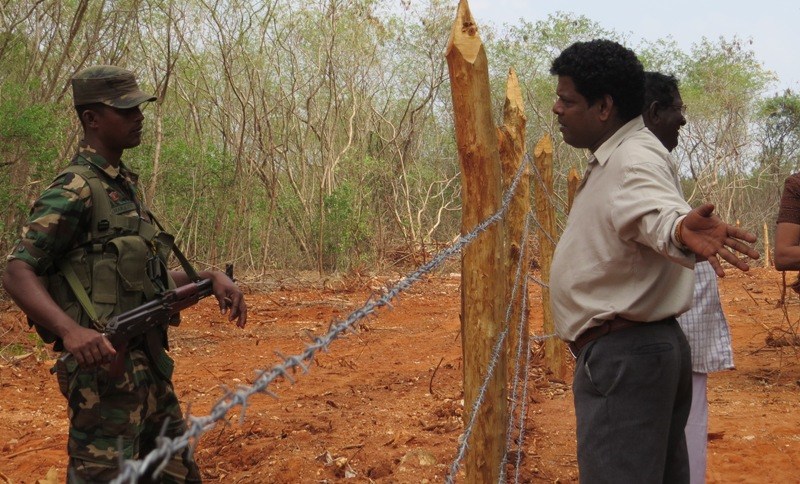
 31/12/2018
31/12/2018



